by Amanda Rose Newton
Salt tolerance of plants is seldom thought about outside of coastal communities, but it can traumatically shift what an individual can grow from season to season.
Here in Brevard, we not only have folks living ocean-adjacent but also have high levels of salt intrusion in random pockets on the mainland.
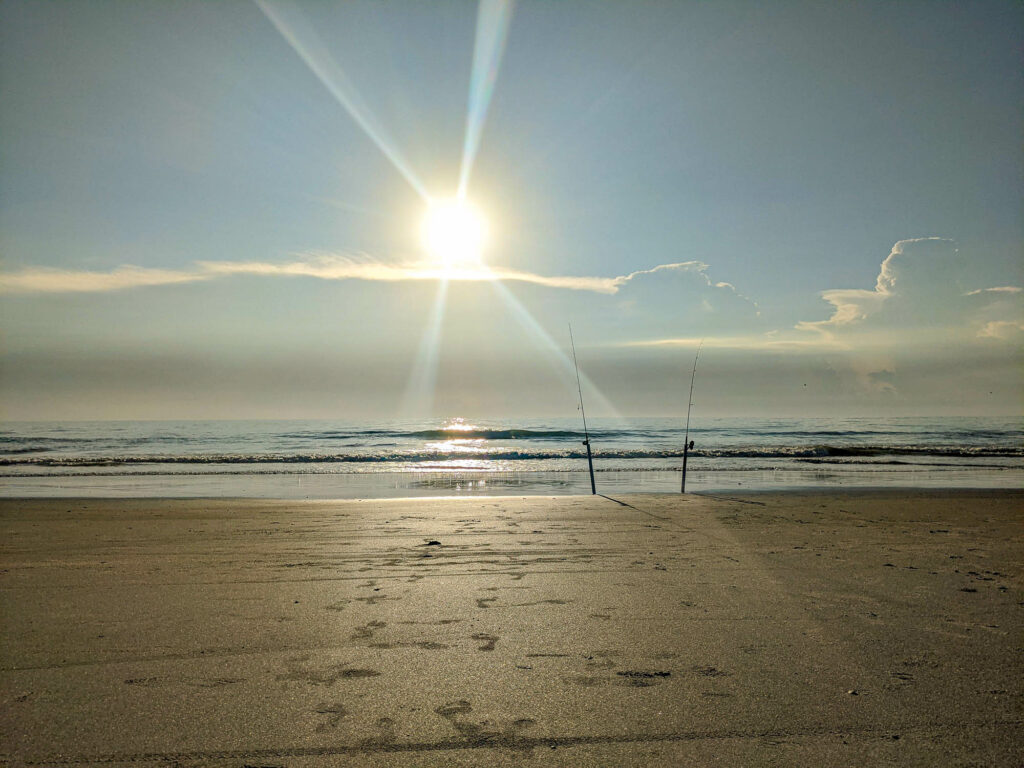
Saltwater intrusion is when saline water seeps into the groundwater pumped for drinking, bathing, and watering plants. Because of this, it’s worthwhile to pay attention to the water source you prefer for plant use to ensure it isn’t above the recommended levels of salt.
How does salt harm plants?
Exosmosis, similar to osmosis, causes water to rush out of the plant, leaving shriveled, burnt leaf tissue behind.
Salt spray, common to the barrier islands, leaves behind residue on plants just like it does on your vehicles. Too much of this will burn the leaf and cause leaf drop.
The results of salt are much more apparent in times we have not experienced much rain to aid in rinsing the leaves.
Very few wells on Merritt Island or the Barrier Island are salt-free, so even if you can avoid sea spray to an extent, your plants are still at risk.
How Much is Too Much?
Salt suspended in water is measured in parts per million (ppm), and the range your water falls into will let you know what plants you can get away with planting.
We group them into High, Medium, and Low salt tolerance. Choose accordingly!
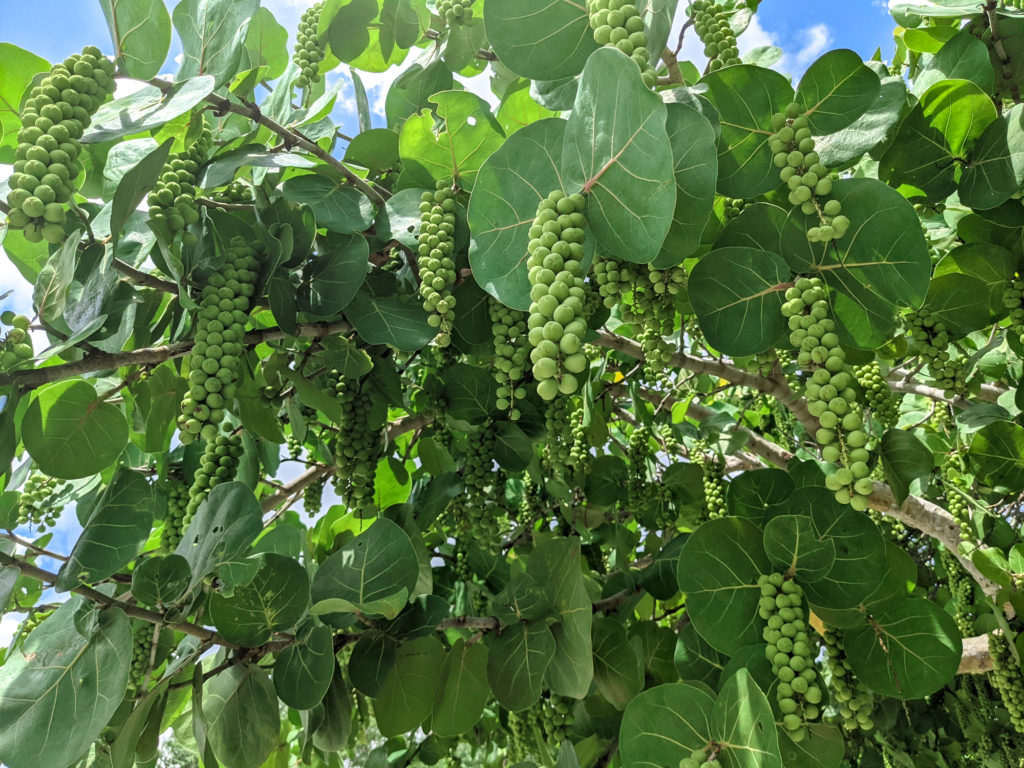
If you are unsure what the salt content of your water is, stop by for a free salt test! Just collect water that has been running for about 10 minutes into a container to bring to our info kiosk next time you are in the area.
High Tolerance: More than 2400 ppm salt.
Plants with high salt tolerance are tough enough to deal with most conditions including high exposure to ocean wind and irrigation water.
Medium Tolerance: 1200-2400 ppm salt.
Plants with medium tolerance will not handle sea spray but can withstand some salt present in the irrigation water.
Low Salt Tolerance: less than 1200 ppm
Plants labeled as low salt tolerance will not be able to handle even a slight exposure. Plant in locations not exposed to ocean winds and irrigate with water low in salt.
Salt Tolerant Plants
The following is a list of plants suitable for high salt content in the water and air. Plants native to Florida (coastal) and adapted for salty conditions are noted with an asterisk. For the full list, including suggestions for moderate salt tolerance, check out our salt information sheet.
Trees
Sweet Acacia- Acascia farnesiana
Autograph Tree- Clusia Rosa
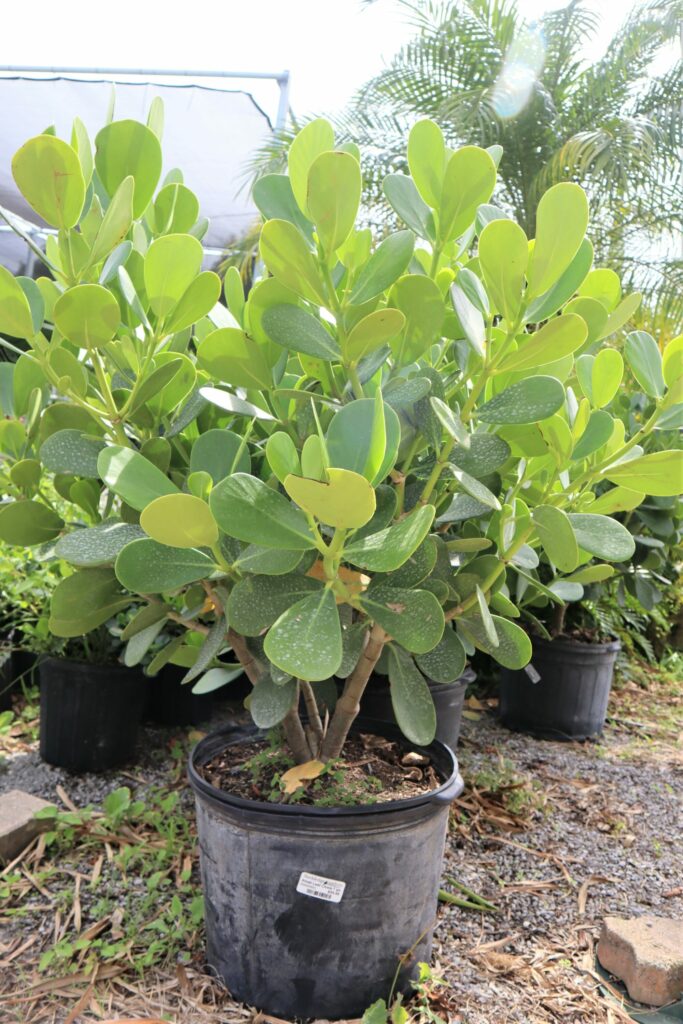
Black Olive- Bucida buceras
Buttonwood- Concocarpus erectus
Cassia- Cassia spp.
Gumbo Limbo- Bursear simauruba*
Ligustrum Vitae- Guaiacum sanctum
Live Oak- Quercus viginiana*
Magnolia- Magnolia grandiflora*
Mahogany- Swietenia mahagoni*
Orange Geiger Tree- Cordia sebestena*
Plumeria- Plumeria spp.
Screw Pine- Pandanus utilis
Sea Grape- Coccoloba uvifera*
Silver Buttonwood- Concocarpus sericeus*
Palms
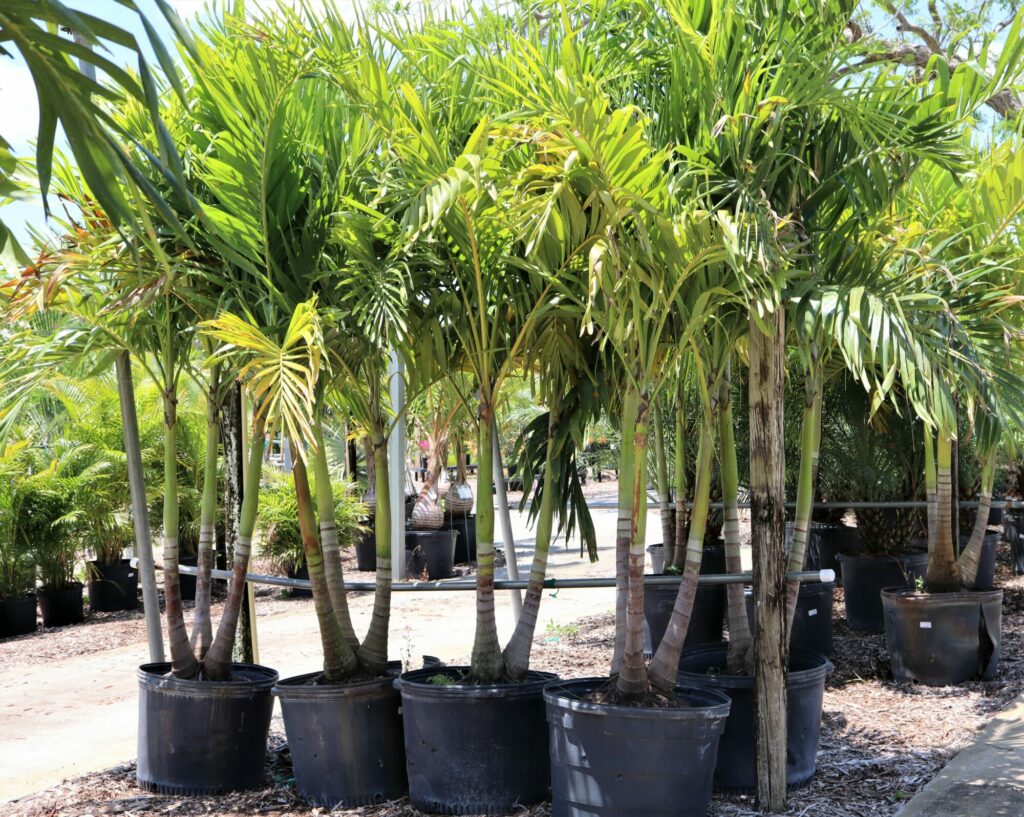
Bismark- Bismarkia nobilis*
Bottle Palm- Hyophorbe lafenicaulis
Cabbage Palm- Sabal palmetto*
Canary Island Date Palm- Phoenix canariensis
Chinese Fan Palm- Livistonia chinensis
Christmas Palm- Adonidia merrillii
Coconut Palm- Cocos nucifera
Everglades Palm- Acoelorraphe wrightii*
Pgymy Date Palm- Phoenix roebellini
Cycads
King Sago – Cycas revoluta
Cardboard Palm- Zamia furfuraceae
Vines

Allamanda- Allamanda spp.
Bouganinvillea- Bougainvillea spp.
Carolina Jasmine- Gelsemium sempervirens
Confederate Jasmine- Trachelospermum jasminoides
Night Blooming Cereus- Hylocereus undatus
Corky-Stemmed Passionvine- Passiflora suberosa
Shrubs
Cocoplum– Chrysobalanus icaco
Firecracker Plant- Russelia equisetiformis
Hibiscus- Hibiscus rosa-sinensis
Indian Hawthorn- Rahpiolepis indica
Jatropha– Jathropha hastata
Muhly Grass- Muhlenbergia capillaris
Necklace Pod- Sophora tomentosa
Scaveola- Scaevola plumieri
Sand Cord Grass- Spartina bakeri
Sea Oats- Uniola paniculate
Simpson Stopper- Myrcianthes fragrans
Wax Myrtle– Myrica cerifera
Yaupon Holly- Illex vomitoria
Yucca- Yucca
Fruit and flowers are not out of the question!
If you cannot imagine living in Florida without a fruit tree, give Loquats (Eriobotrya japonica) a try. The prickly pear cactus (Opuntia spp.) is a native that delivers a beautiful sweet fruit season after season.
For flowers, stick to natives when possible. Our state flower, the coreopsis is a great choice, as are native lantana and asters.
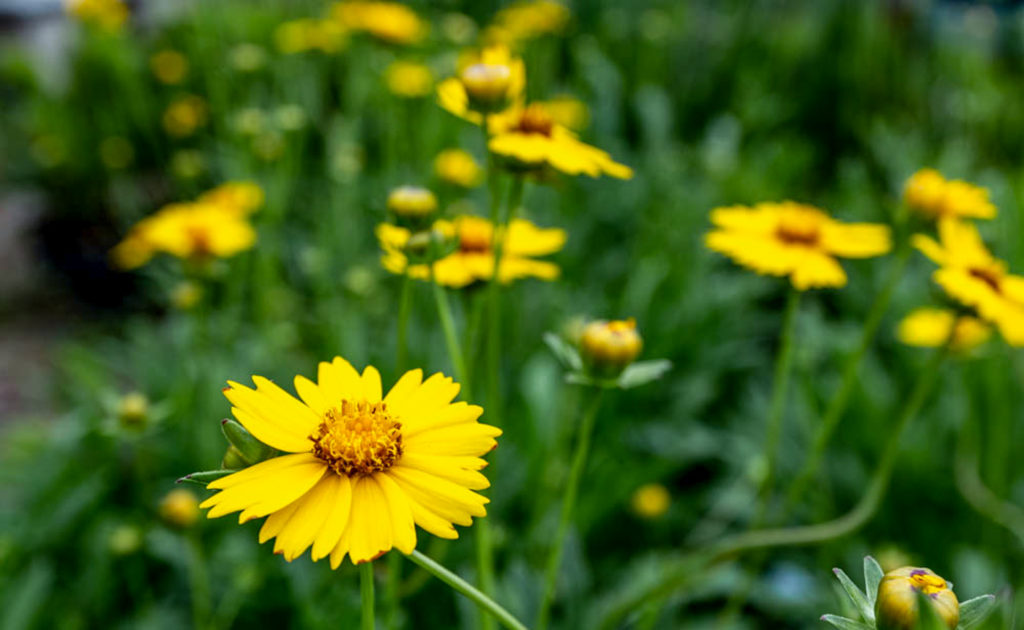
Those living beachside can plant gaillardia, goldenrod, and dune sunflower problem free.
The miraculous adaptability of plants ensures that all gardeners have an opportunity to have the yard of their dreams.


